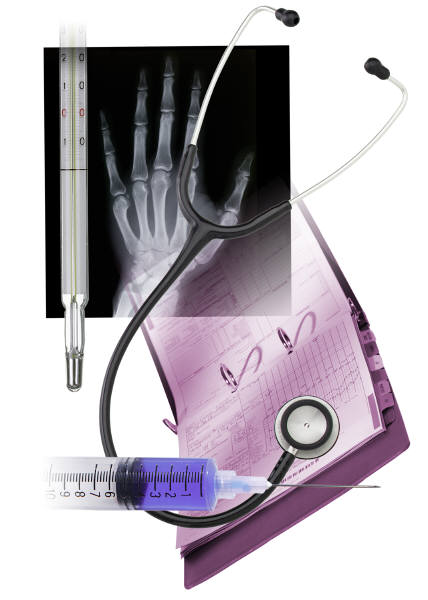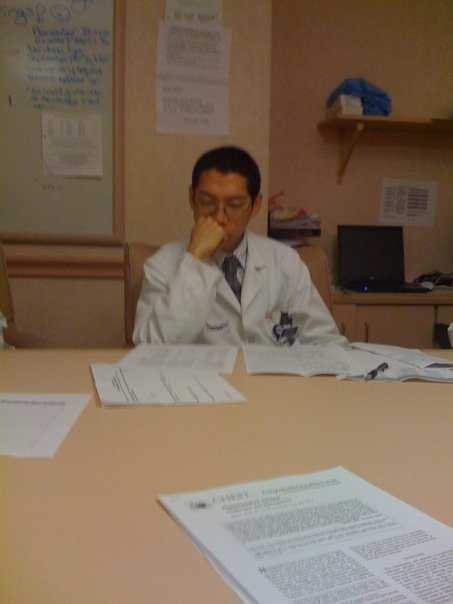
“I want to be a doctor. How do I do it?”
As a teenager, I was very shy and very awkward. Talking to strangers was a painful and anxiety-laden task, and I didn’t like to talk to strangers any longer than necessary. So when a pediatrician asked me, at a routine office visit, if I had any questions, I surprised myself by blurting out, “I want to be a doctor. How do I do it?” I had never seen the same pediatrician twice, mainly because most of them were residents-in-training. This one was caught off-guard by the question, so she rambled a bit. She talked about medical school and residency and fellowship, about job security and the logistics of working in a practice, about other things she must have been preoccupied with in the scope and span of her professional life, things that I couldn’t know. She finished talking and exited the room, leaving my mother and I to wait.
The two of us had recently been talking about my future career. She was a nurse, and though there were many positive experiences she would share at the dinner table with me, the impact of many negative experiences caused her to humbly and gently discourage me from going into the medical field myself. She would tell me how hard and how stressful it could be, how many of its demands were dirty, unforgiving, and intense. She was a similarly introverted person who chose the work for a very adult-like reason: it was good work that provided a good opportunity for migrating to America. She would tell me stories about her first day of nursing school in her home country, how the new students were led down to the large formaldehyde “pool” in the basement where an instructor immediately plucked out a dripping arm and began teaching. She told me that people promptly vomited and a third of the class dropped out that day, and that she strongly considered doing the same thing herself.

Medicine has changed in many ways. Though the hours and training have become more forgiving and humane over the years, other elements have actually become more noxious to the process: the ballooning price of education, uncertainty over major shifts in the landscape of health policy and insurance, the ever-increasing length of medical training, and the associated opportunity cost of lost alternative careers. This does not even begin to mention the fear of malpractice (not to be confused with the distinctly different fear of malpractice lawsuits), the burden of responsibility, the ever-mounting piles of paperwork, the erosion of patient-provider trust, the advent of the self-information (and dis-information), the loss of respect and autonomy in practice (and in relation to insurance companies). Any physician can (and perhaps is likely to) list an unending tally of reasons not to become a doctor in today’s healthcare environment.
It is therefore not surprising that it has become more and more difficult for aspiring students to describe why they want to become involved in healthcare, or even for current healthcare workers to describe why they continue to practice from day to day. At the end of the day, so much of it comes down to stories: abstract but intensely personal illustrations that capture the essence of an idea and what makes it so compelling even in the face of many practically demoralizing factors. It is why it is easier to describe and quantify the negative and yet so difficult to advocate for something positive and meaningful.
However, this is why there is something more to becoming a “Christian physician” than simply being a Christian and being a physician. We are created as both body and soul, as both the concrete and the metaphysical. Early church doctrine struggled to battle the heresy of Gnosticism because, as the Gnostics knew, there is something very appealing about the supremacy of asceticism and the idealized, intangible spiritual realms above that of the dirty, imperfect, and broken physical world we find ourselves in. And yet the message of the gospel is this: that God himself became flesh and took on physical form in the world, with all its impurities and imperfections, that we might have access to life:
So if there is any encouragement in Christ, any comfort from love, any participation in the Spirit, any affection and sympathy, complete my joy by being of the same mind, having the same love, being in full accord and of one mind. 3 Do nothing from selfish ambition or conceit, but in humility count others more significant than yourselves. Let each of you look not only to his own interests, but also to the interests of others. Have this mind among yourselves, which is yours in Christ Jesus, who, though he was in the form of God, did not count equality with God a thing to be grasped, but emptied himself, by taking the form of a servant, being born in the likeness of men. And being found in human form, he humbled himself by becoming obedient to the point of death, even death on a cross. – Philippians 2
As that awkward teenager sitting silently in that sterile, clinical office, I must have looked pensive and puzzled. My mother watched me mull over the very grown-up words of a grown-up pediatrician. She looked at me directly, interrupted the silence and said, “David, she did not say the most important thing: you get to help people. And you help them when they need it the most.”
People often ask me what medical school and medicine are like, and I often find myself falling into adult lingo and babble. I babble about the cost of school, about the monetization of medicine, about the burden of responsibility and the terror of error. On my more cynical and jaded days, I will babble for quite a long time. But what I eventually aim to tell people is that the highest aspiration of the practice of medicine is to invoke and evoke the gospel: that through the physical engagement of Christ in our suffering, we have resurrection. In that, I find unending satisfaction.
Indeed, I count everything as loss because of the surpassing worth of knowing Christ Jesus my Lord. For his sake I have suffered the loss of all things and count them as rubbish, in order that I may gain Christ and be found in him, not having a righteousness of my own that comes from the law, but that which comes through faith in Christ, the righteousness from God that depends on faith—that I may know him and the power of his resurrection, and may share his sufferings, becoming like him in his death, that by any means possible I may attain the resurrection from the dead. – Philippians 3
[This is an introduction to a series on becoming a Christian physician.]
Update: 8/2/2013. 9:32 PM. Added the 2nd sentence in the first picture’s caption and the “Sleeping Doctor” picture.
David graduated from Princeton University with a degree in Electrical Engineering and received his medical degree from Rutgers – Robert Wood Johnson Medical School with a Masters in Public Health concentrated in health systems and policy. He completed a dual residency in Internal Medicine and Pediatrics at Christiana Care Health System in Delaware. He continues to work in Delaware as a dual Med-Peds hospitalist. Faith-wise, he is decidÂedly Christian, and regarding everything else he will gladly talk your ear off about health policy, the inner city, gadgets, and why Disney’s Frozen is actually a terrible movie.

Leave a Reply